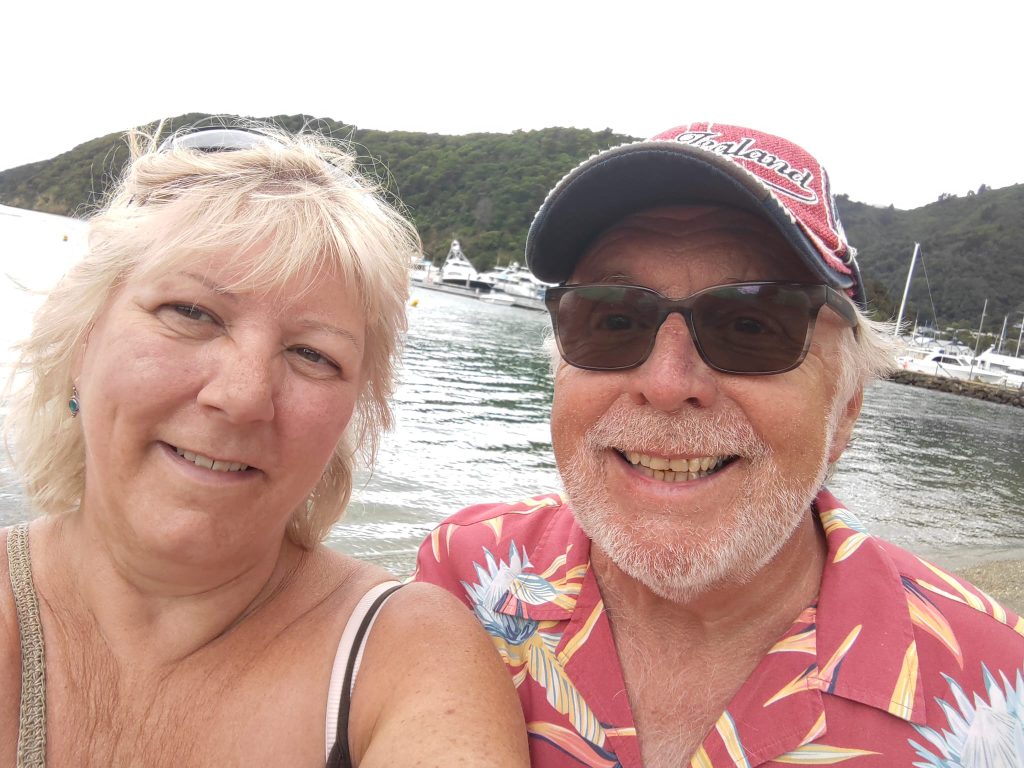My name is Mike Burrows, aged 69, from Ashbourne, Derbyshire, UK. My story starts the first week of October 2022 when I was 68. Following my retirement in the August, I discovered a small lump under my arm on the side of my right breast.
After discussing this with my wife, we thought I should contact my GP surgery. After explaining what I found, the receptionist asked me to hold the line while she spoke with a GP, then she came back and said they wanted to see me the following day. On arrival the following day, I apologized that I may be wasting their time, especially as Covid restrictions were still in place in Surgeries, and appointments were scarce.
Upon examination I was referred to the Royal Derby Hospital to see an oncologist the following week. When arriving at the clinic, I observed the sign above the entrance “Breast Clinic”, and it suddenly dawned on me that I was about to enter a predominantly female clinic. After booking in, I took a seat amongst all the other patients, I was the only male there and was looked at suspiciously, since it was my first appointment, I did not have my wife with me. My assigned nurse came over to me and introduced herself and asked me to follow her. When I arrived in the consultation room, I was greeted by a male oncologist. My lump was looked at with ultrasound, and it was decided a biopsy was needed and it was done right there on the day.
My next appointment was the week after for the result. This time my wife accompanied me which was a good thing as we were told the biopsy result was positive. At this point I just sat staring at the ground. While the procedure was explained to us, I kept saying to myself, I’ve got cancer. The date for surgery was four weeks away, and I could not wait to have it removed. During the time waiting for surgery, I was referred to the familial clinic for DNA testing as I had no family background to refer to. The results came back with no cancer genes found.
I was recalled to my GP for an assessment on my mental health as it was recognized this was a stressful time in my life, and I needed someone else to talk to. On the day of my operation, we attended the ward as instructed. As we had arrived 10 minutes early, we were taken from the waiting area and into a private room. It was explained that this was because I was a male in a female ward.
My surgeon arrived to explain the procedure and offer reassurance to us both. He apologized that I would then go to a surgical ward as the breast cancer ward could not accommodate male patients.
My mastectomy operation was carried out that afternoon and returned to my ward to spend the night under observation and returned home the next day. My follow-up included five sessions of radiotherapy, I was also prescribed tamoxifen for five years, like all breast cancer patients in the UK.
The only downside to my whole experience was the seroma, which is fluid around the breast. I gather it’s not commonly recommended due to infection, but it was decided it should be drained.
Following the wound healing, I have had checkup appointments and physio to help with movement. It is now 14 months since the operation, and I can now be called a cancer survivor. I do experience some discomfort due to skin tightness, from when I was reassembled and from the effect from radiotherapy.
All the staff that looked after me, and gave us both guidance and support, were fantastic, from my GPs, Breast Care Team, Physio Team and all the medical staff at Royal Derby Hospital.
I am now trying to make men aware that they also can get cancer of the breast and need to be aware of the signs. As a whole, men need to be proactive. If they notice any changes whatsoever, they should ask for help and contact the doctor, since while it may be nothing, it could also be something serious.
My story has now been covered by 12 online publications and both local radio and TV. I have been surprised by the number of men and women who were not aware of breast cancer in men. My operation involved removal of the Sentinel Lymph Node to see if had spread. Thankfully it hadn’t.
This made me wonder how many other cancers start in the breast and go unnoticed, I’m thinking prostate, testicular, bowel, etc, to name a few. Reported cases in men are 1% and I ask the question, how many are not spotted and travel through the Lymph System to somewhere else in the body? As men don’t have as much breast tissue as women, it should be easier to detect, if they are aware. More needs to be done about Male Breast Cancer awareness.

